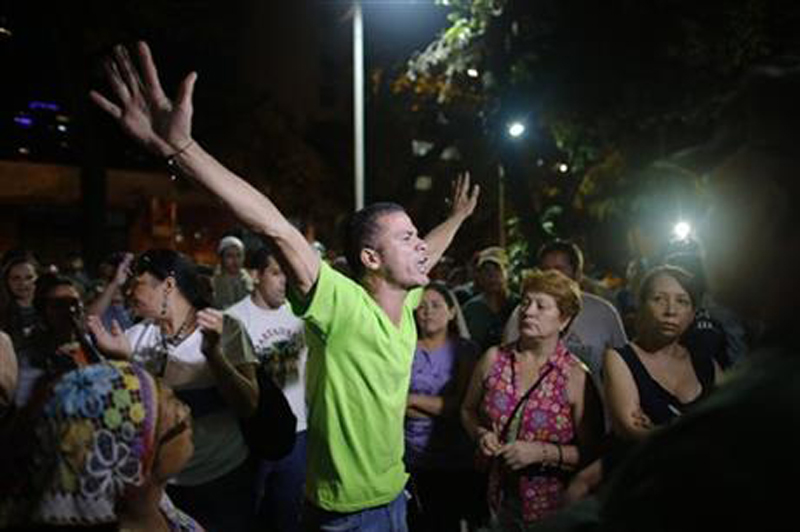Venezuela's opposition wins control of National Assembly
CARACAS, VENEZUELA: Venezuela's opposition won control of the National Assembly by a landslide on Sunday, delivering a major setback to the ruling party and altering the balance of power after 17 years of socialist rule.
The opposition won at least 99 seats in the 167-seat legislature, National Electoral Council President Tibisay Lucena announced after midnight. The socialist party won 46 seats and the remaining races have not yet been decided.
The streets of the Venezuelan capital of Caracas broke out in shouts of joy and fireworks after the partial results were announced. Opposition leaders had earlier claimed they won but gave no indication of the margin.
"I can say today that the economic war has triumphed," Maduro said in a televised address from the presidential palace.
Former presidential candidate Henrique Capriles said on Twitter that "with great humility, serenity and maturity we accept what the people decided."
The opposition victory dealt a serious blow to the socialist revolution started 17 years ago by the late Hugo Chavez, who until his death in 2013 had an almost-magical hold on the political aspirations of Venezuela's long-excluded masses.
It was also a major blow to Latin America's left, which gained power in the wake of Chavez's ascent but more recently has been struggling in the face of a region-wide economic slowdown and voter fatigue in some countries with rampant corruption. Last month, Argentines elected a conservative businessman over the chosen successor of Cristina Fernandez, who was a close ally of Chavez. In Brazil, President Dilma Rousseff is battling low approval ratings and facing impeachment over a corruption scandal in her left-leaning Workers' Party.
Maduro had repeatedly vowed in recent weeks to take to the streets and defend the socialist system build by his mentor Chavez if his party lost, though on Sunday, he appeared to soften his tone.
"In Venezuela, peace and democracy must reign," he said after voting in a working-class neighborhood of Caracas. "I've said we'll take the fight to the streets, but maybe I was wrong. We can't go where we've always been."
The result marked the opposition's first major electoral victory since Chavez became president, with Venezuelans tired of rampant crime, routine shortages of basic goods and inflation pushing well into triple digits. The economic crisis has worsened with this year's slump in oil revenue, which funds almost all public spending.
Voting proceeded mostly peacefully through the day, though fears of unrest prompted some Venezuelans to line up before dawn so they could cast their ballots and get off the streets.
Alejandro Ramirez spent the day riding around to polling centers with a motorcycle gang to encourage government supporters to vote. "We must never let the right wing win here," he said as his group ringed a voting center in the pro-government stronghold 23 de Enero, as pro-Chavez salsa songs filled the street.
As voting wound down, several ruling party governors were caught on film braving boos and insults as they entered their polling places, including Chavez's brother Adan.
Some hardliners are vowing to seek a recall referendum to cut short Maduro's term before it ends in 2019. But reining in Maduro, who became president after Chavez died in 2013, would require new laws needing at least a three-fifths majority, or 101 seats — two more than now held by the socialists. Maduro's near-complete grip on other branches of government like the Supreme Court mean he can easily outflank a hostile congress.
The opposition, with little cash and little access to broadcast media, has struggled to compete in far-flung rural districts against the government's campaign machine. In 2010, voting nationwide was almost evenly split yet the government ended up seating 33 more lawmakers due to Venezuela's complicated electoral system.
Yosmeli Teran is one of the party's former supporters whose abstention this time around is believed to be one of the biggest contributors to the opposition's strength.
Drinking rum at an informal street party, she resisted her neighbors' pleas to vote.
"This is a slum. I know it will never be a safe place. But if it could just be a little less violent. And if it could be a little easier to feed and clothe my son," she said.






